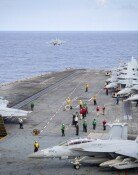Japan Lost Chance to Become Global Leader in 1980s
Japan Lost Chance to Become Global Leader in 1980s
Posted July. 22, 2008 19:42,
The 1980s was a period in which Japan could have cleared its past history and become a respected global leader. Regrettably, Tokyo lost a golden opportunity.
So says John Ikenberry, professor at the Woodrow Wilson School of Public and International Affairs of Princeton University, on Japans latest claim to the Dokdo islets.
In an exclusive interview with The Dong-A Ilbo yesterday, he said international issues can be resolved through international organizations, including the United Nations and NATO.
He has also been advising the U.S presidential candidate Barack Obama`s foreign policy team on international institutions and policy planning.
Ikenberry spoke to The Dong-A Ilbo at Seouls Kyung Hee University, which invited him as the first lecturer of the schools summer Global Scholar Program. Here are excerpts of the interview.
Q: Unlike Europe, in which NATO was built with the United States taking the initiative, some say the establishment of a security community is unrealistic in Northeast Asia unless conflicts are resolved.
A: Security in Asia has been maintained through individual alliances with the United States. Under these circumstances, some neighboring Asian countries have failed to improve their relations (with each other). To resolve such issues and build a multilateral security system in the region, Asia needs a regional security community like an Asian NATO. The six-party talks to resolve the North Korean nuclear issue can be the predecessor of such community.
Q: There is a recurring diplomatic conflict in Northeast Asia over Japans past history. Is there a solution to this problem?
A: Japans psychology of seeing goodwill (of reflecting on past wrongdoings) as a weakness is a reason. Losing the opportunity to become a true global leader (by rectifying its misdeeds), Japan is in a more difficult situation with the emergence of China and competition with neighboring countries. However, the emotional diplomacy of neighboring countries does not help, either. Their excessive demands have rather galvanized conservatives in Japan to unite.
Q: In economic cooperation, bilateral structure such as free trade agreements is more common than multilateral structure in Asia. Some say this might be mutually beneficial for two countries but is exclusive to other countries.
A: Good point. However, mutual interests are entangled complicatedly in politics or economy in the region. I believe the demand for a multilateral body is already sufficient, such as energy security, immigrant workers and the environment, not to mention economic cooperation.
Q: As shown in its proactive dialogue with Iran and North Korea, the Bush administration seems to have shifted its diplomatic direction. How would you assess the administrations positive diplomatic achievements?
A: I think the strategic improvement in relations with India was a wise choice because that helps the United States check China. Regrettably, however, the Bush administration has a short list of achievements. (Laugh) Let us call the recent proactiveness of the administration in negotiating with Iran and North Korea Obamaization of sorts. It is only a variable change.





![술의 위기, 범인은 넷플릭스와 위고비? [딥다이브]](https://dimg.donga.com/c/138/175/90/1/wps/NEWS/IMAGE/2026/02/27/133435221.1.jpg)

